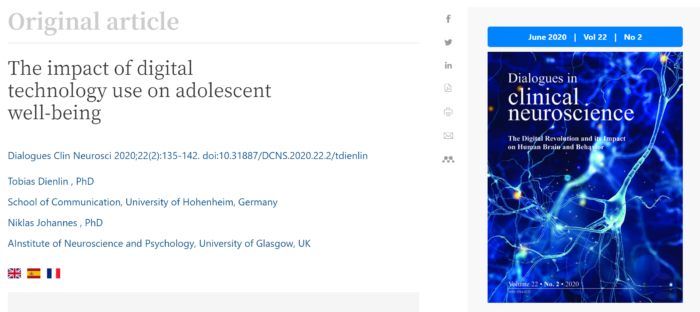One of my major research interest is to understand better the privacy paradox. According to the privacy paradox, privacy concerns don’t affect our online behavior.
In short, everyone is concerned, but still everyone is sharing widely.
I was always skeptical of the privacy paradox, and wherever there’s data on concerns and online sharing I’m eager to analyze it. One analysis, conducted together with Philipp Masur and Sabine Trepte, was recently published by New Media & Society. In this post, I provide a brief summary.
Continue reading →







